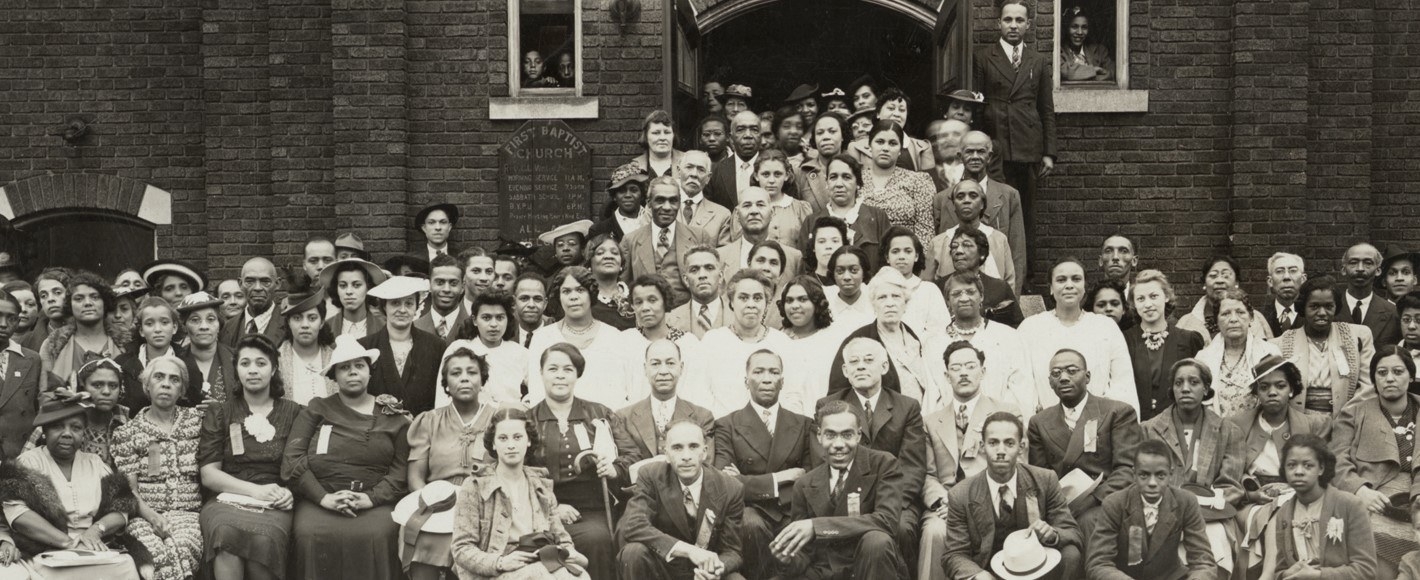Walk Through the Black History of Windsor’s McDougall Street
The McDougall Street Corridor had all the hallmarks of a bustling neighbourhood — doctors, dentists and lawyers, restaurants and banquet halls, an independent credit union and a church. It was one of the largest Black settlements in Canada and the heart of the Black presence in Windsor until the 1960s. Then, under a campaign of urban renewal policies, came the demolition of historic buildings and ultimately the uprooting of the entire community. [SMA(h|el(1]
Now, thanks to the McDougall Street Corridor Walking Tour, the neighbourhood’s Black cultural history is being brought back to life. An immersive app, developed by Parallel 42 Systems, guides participants along a route of historical locations. Since most of the physical buildings are no longer standing, the app provides photographs, videos, recordings and text to help people envision what — and who — used to be there. Those who cannot physically take the tour can find all the same information on the tour website.
The Centre for Cities at the University of Windsor received $250,000 to support the McDougall Street Corridor Walking Tour from the Government of Canada’s $23.25-million investment in My Main Street through the Federal Economic Development Agency for Southern Ontario (FedDev Ontario). The Canadian Urban Institute (CUI) is delivering the My Main Street Community Activator program, which funds projects that offer economic and social benefits for equity-deserving groups.
The project was coordinated by Dr. Anneke Smith of the University of Windsor’s Centre for Cities. The research grounding the project was led by Willow Key, a master’s student at the University of Windsor. Key conducted oral interviews, poured through the town’s archives and compiled the information that went onto the app and website.
“By recording the stories and memories of current and former residents, we have been able to share a glimpse of this once-vibrant, close-knit community,” notes Key. “The McDougall Street Corridor Walking Tour makes this history accessible to the public in an engaging format and gives Windsorites a chance to learn more about this city’s Black history and the devastating effects of urban renewal policies.”
Key collaborated closely with Dr. Heidi Jacobs of the Leddy Library, as well as Irene Moore Davis, president of the Essex County Black Historical Society.
The walking tour goes beyond educating residents and visitors about local Black history. “It’s been so great to see so many people becoming really excited about the history of that neighbourhood,” says Davis. “Including younger people of African descent who only remember their grandparents or great uncles or great aunts speaking about it, but who never saw.”
By demonstrating the magnitude of Black accomplishments in the face of enormous obstacles from the past, the tour helps reimagine the possibilities for Windsor in the present. David says the project has come along at a critical time, as the city and region engages in discussions about what downtown Windsor and City Hall Square should look like.
“Major things are happening right now,” says David. “It’s really important that this project has come along at this moment to be part of those discussions, because there is such a great opportunity to right some of the wrongs that historically have occurred — and to create spaces that actually help to cultivate Black entrepreneurship and economic wellness.”




